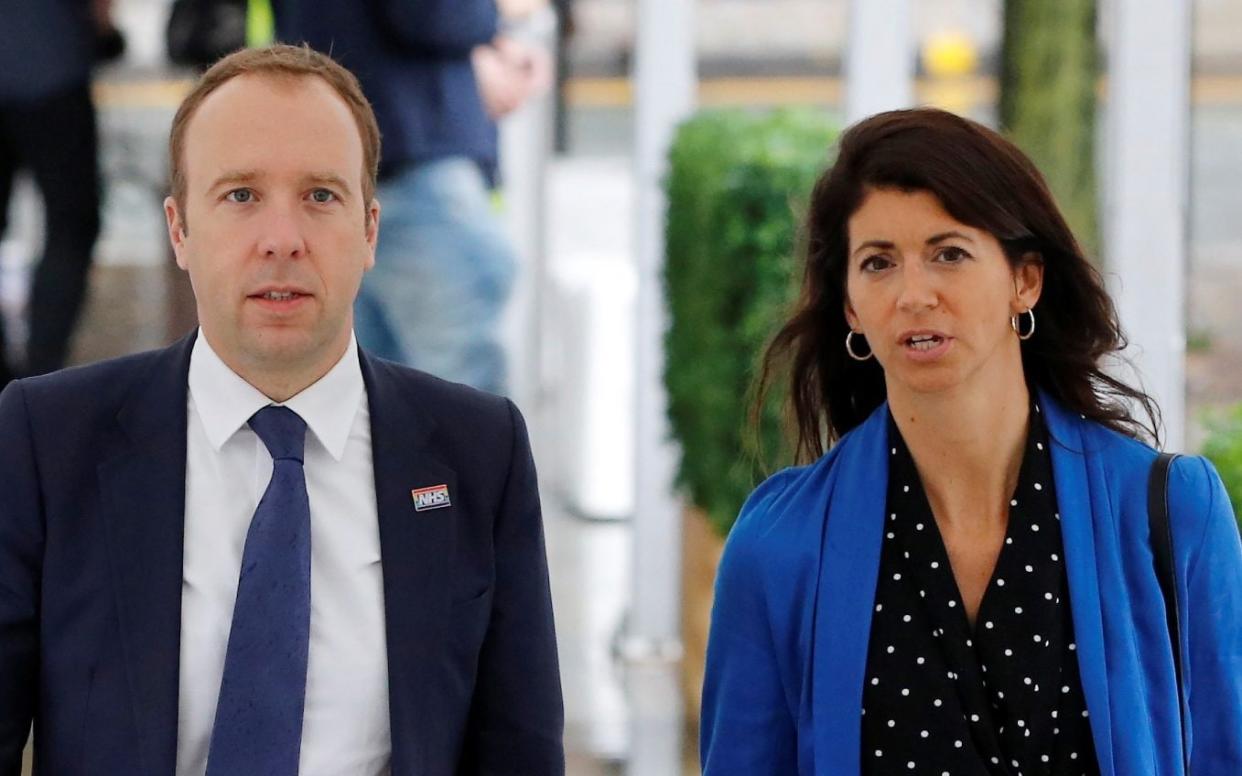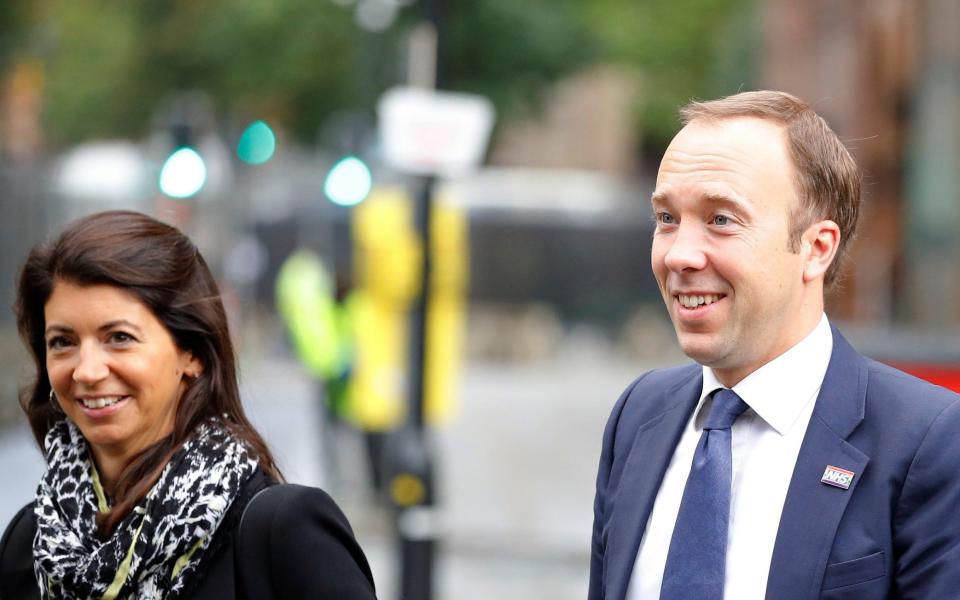Matt Hancock took mistress Gina Coladangelo to a G7 health conference three weeks ago

- Oops!Something went wrong.Please try again later.
Matt Hancock took his mistress Gina Coladangelo as his aide to a G7 conference three weeks ago, prompting calls for an overhaul of the rules governing the appointment of government non-executive directors.
Health department sources confirmed that Ms Coladangelo, a non-executive director in the department since last September, attended the G7 meeting of world health ministers at Oxford University on June 3 and June 4.
The G7 health ministers meeting brought together health leaders from the world’s major democracies to agree action on preventing future pandemics and a shared vaccine passport scheme.
The event involved an overnight stay.
The Department of Health refused to say whether Ms Coladangelo stayed overnight at the event, nor if she met any world leaders at the event.
Health ministers from Canada, France, Germany, Italy, Japan, the UK and the US met to discuss global health policies and actions. India, South Korea, South Africa, and Australia attended as guests.
During the event Mr Hancock, alongside other health leaders, planted 10 Japanese cherry blossom trees at the Oxford Botanic Gardens.
Department sources said Ms Coladangelo, a friend of Mr Hancock's since their time as students at Oxford University, attended in her role as a non-executive director "with oversight responsibility for international policy".
There was fresh scrutiny on the role of Ms Coladangelo, who first started to advise Mr Hancock when he was running to be Conservative party leader in July 2019. She was then photographed at his side at that Autumn's Conservative party conference.

One friend told The Telegraph that she had helped to "sharpen up his image" for the media, including advising him only to wear white shirts with his ties, saying: "She helped with some image things."
Mr Hancock turned to her over the following months and years for advice on "strategic level stuff", the source said. "She is someone he has known for 20 years and every politician wants people you can trust. Someone who he knew and trusted their judgment."
Ms Coladangelo was appointed directly by Mr Hancock to work for him last year. She started at the department on Sept 1. Her £15,000-a-year appointment was not subject to a competitive process.
Government guidance states that non-executive directors should be appointed through "fair and transparent competition". Appointees are required to declare any conflicts of interests that could affect their ability to scrutinise ministers' work.
The Department of Health declined to say whether she had declared her personal relationship with Mr Hancock.
On Sunday night, friends said Mr Hancock, who has left his wife Martha, and Ms Coladangelo are now considered to be a couple in a "properly serious" relationship which started at the beginning of last month.
One friend said: "It is not some sort of fling. You cannot control who you fall in love with and how it happens.
"This is a situation that hundreds of thousands of people go through regularly. It is a bit sad that it has had to play itself out publicly in a way that is unpleasant for the families involved."
The revelations prompted Tory MPs to call for more transparency over the way that departmental non-executive directors were appointed.
Non-executive directors sit on the board of government departments and are intended to bring private sector expertise to the process of scrutinising ministers’ work.
David Jones, a senior member of the public administration and constitutional affairs committee, which oversees Civil Service appointments, said: "The procedure for the reappointment of non-executive directors needs to be transparent and possibly the need for transparency is something that needs to be looked at."
Mr Jones said the matter should be examined by the new Public Appointments Commissioner who is due to be announced by the end of next month "as a matter of priority".
Peter Riddell, the outgoing Commssioner, warned the committee on standards in public life that there were “growing concerns” that the directors were often “political allies of ministers” rather than independent advisers.
Mr Riddell told the committee in March: “No one knows how they [non-executive directors] are appointed. Sometimes there's references to direct appointment. In other cases it is said there's a competition. No one knows what form of competition that is.”
In a separate letter to the committee, Lord Evans, Mr Riddell wrote: “Non-executive members of the boards of government departments are also not regulated at all, and there have been growing concerns about this omission as the original idea of bringing in people with business and similar experience from outside Whitehall has been partly replaced by the appointment of political allies of ministers, in some cases without competition, and without any form of regulatory oversight.
“The overall danger of these developments is they may reduce diversity of thought and experience rather than increase it.”
